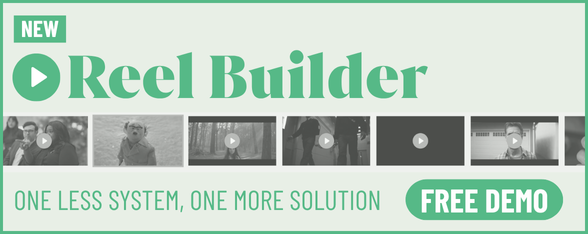
The Very Human Story behind a New AI Platform for Creatives

When Dissara Udomdej’s friend died from the stress of overworking, he knew that something had to change in the advertising industry. In Thailand specifically, 46.7% of people work over 48 hours a week, making it the country with the third largest group of overworkers in the world.
Speaking at the 2023 Creative LIAisons event at the London International Awards in Las Vegas, Dissara revealed the tragic truth behind his new artificial intelligence platform AI-Deate. Created specifically for creative agencies, he hopes that his tool will help save time and relieve some of the pressures facing people working in the industry.
After demonstrating the platform, which has been designed to help with tasks like pre-visualisation and storyboarding, Dissara spoke to LBB to expand upon the journey he has been on to bring the platform to life.
The decision to create a platform specifically for creatives came when Yell Bangkok’s chief executive officer realised that using existing generative AI tools for advertising purposes was still an inefficient and cumbersome process.
“At first we had two choices. The first one was to use something that already existed and the other was to do it our own way. I did so much research into AI platforms and most of them, I think, are not designed for creative people. They’re designed for the broad market. They can do many things but they are too broad to use in advertising. If we want to solve the problems in advertising agencies, we need to figure out and narrow down the requirements,” he says.
Yell was able to create such a platform because it had the capabilities in-house. Dissara explains that the covid pandemic hit Thailand’s start-up scene and tech sector hard, with many companies running out of money. And so, three years ago, Yell brought one such tech company into the Yell group. With a decade of experience in AI, the team was able to adapt and build a custom platform.
One interesting feature of AI-Deate is that it can operate in multiple languages. At a time when industry experts speculate that prompt writing may well become a sought after skill, Dissara noticed that many existing platforms were built around the English language. That creates an extra barrier to those for whom English is not their first language and that’s why he has designed the platform to work in Thai, Chinese and Spanish as well as English.
“If I wanted to make it more accessible, more inclusive for all creatives, I need to find a solution for them. I think that the multiple language feature can break the barrier,” says Dissara.
He believes that the overwork problem has been caused by technology - but that technology can also provide the solution. “I have a very strong belief that AI can help us but not replace us,” Dissara says. Curiosity, intention and wisdom are, he says, uniquely human. AI may be able to do a number of things, but it needs humans to give it direction.
Currently, creatives can use the basic features of AI-Deate for free. Longer term, the goal is to operate a business model that runs on revenue sharing, so that the models and artists who created the content that feeds the algorithm can profit from their contribution.
Bringing AI-Deate to life has been rife with challenges thus far. Dissara says the biggest challenge was creating something that creative agencies could trust. He says that network agencies are nervous about sharing anything that might be confidential. With that in mind, AI-Deate has been created so that agencies can run it off their own closed servers and ecosystem and don’t have to run it from the cloud if they don’t want to.
For now, the team is focusing on storyboarding capabilities. The storyboarding AI is, according to Dissara, still in the beta stage but internally, it’s helping cut time on storyboarding by 30-40%. However, he thinks that efficiency can be improved even more. The feature he’s really looking forward to is a motion storyboard function.
Within Yell, the CEO says that the agency uses AI-Deate every day. “Luckily in my company, we have a lot of young people and a lot of people who are young at heart also. They love to learn, to change their way of working, and to embrace new things. So it’s easy to start trying things in my company. Another thing is that we have very good connections with many universities in Thailand. We like to do workshops with advertising students - they can adopt it very fast. The output may be better than [the TV show] ‘Mad Men’ - because they were born with technology.”
Curiously, having invested a lot of time in building a whole AI platform, Dissara is convinced that when it comes to creativity, humanity is key and that’s the one thing he wants people to remember as they engage with AI as a tool. “The takeaway is that technology comes and goes. The quality of you is the real thing. Last year when I was here, we talked about a lot of metaverse campaigns, but this year it’s all AI. So don’t concern yourself about that too much. It’s not the technology, it’s you.”
Indeed, of all the things that Dissara has learned along the way, one thing really sticks out.
“Actually,” he says, “I learned how to be human.”















